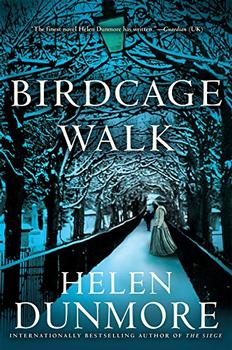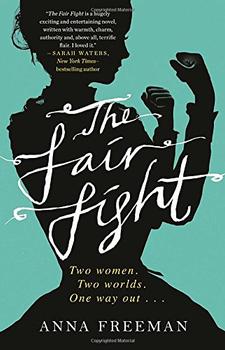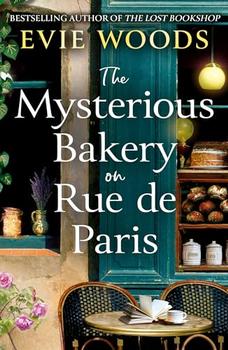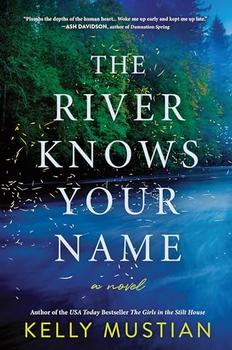Summary | Excerpt | Reading Guide | Reviews | Beyond the book | Read-Alikes | Genres & Themes | Author Bio

A powerful story of secrets and suspicions, hidden histories and mysterious disappearances set in Victorian Scotland.
Scotland, 1863. In an attempt to escape her not-so-innocent past in Glasgow,
Bessy Buckley—a wide-eyed and feisty young Irish girl—takes a job as a maid
in a big house outside Edinburgh working for the beautiful Arabella—the
"missus." Bessy lacks the necessary scullery skills for her new position,
but as she finds out, it is her ability to read and write that makes her
such a desirable property. Bessy is intrigued by her new employer but
puzzled by her increasingly strange requests and her insistence that Bessy
keep a journal of her mundane chores and most intimate thoughts. And it
seems that the missus has a few secrets of her own, including her near-
obsessive affection for Nora, a former maid who died in mysterious
circumstances.
Giving in to her curiosity, Bessy makes an infuriating discovery and, out
of jealousy, concocts a childish prank that backfires and threatens to
jeopardize all that she has come to hold dear. Yet even when caught up in a
tangle of madness, ghosts, sex, and lies, she remains devoted to Arabella.
But who is really responsible for what happened to her predecessor Nora? As
her past threatens to catch up with her and raise the stakes even further,
Bessy begins to realize that she has not quite landed on her feet.
The Observations is a brilliantly original, endlessly intriguing
story of one woman’s journey from a difficult past into an even more
disturbing present, narrated by one of the most vividly imagined heroines in
recent fiction. This powerful story of secrets and suspicions, hidden
histories and mysterious disappearances is at once compelling and
heart-warming, showing the redemptive power of loyalty and friendship. A
hugely assured and darkly funny debut, The Observations is certain to
establish Jane Harris as a significant new literary talent.
A brilliantly spirited first novel set in Victorian Scotland that parodies the sensationalist fiction of the Victorian era - think Wilkie Collins with a dry and dark sense of humor...continued
Full Review
(289 words)
This review is available to non-members for a limited time. For full access,
become a member today.
(Reviewed by BookBrowse Review Team).
According to
The Victorian Web if a Victorian household could afford only one servant it would likely be a 'general' maid-of-all-work (usually a girl of 13 or 14) similar to the role Bessy takes on. Next would come a house-maid or nurse-maid, followed by a cook. Only once this female trio was in place would the first manservant be employed, usually with indoor and outdoor responsibilities, such as waiting and valeting and care of the horse and carriage. To maintain a household staff at this level would have taken about £500 in 1857. If more servants could be afforded the roles of the household would become increasingly more specialized - such as a dedicated ladies-maid, kitchen-maid, nursemaid, butler, coachman etc.
In the list of...
This "beyond the book" feature is available to non-members for a limited time. Join today for full access.

If you liked The Observations, try these:

by Helen Dunmore
Published 2018
Weaving a deeply personal and moving story with a historical moment of critical and complex importance, Birdcage Walk is an unsettling and brilliantly tense drama of public and private violence, resistance and terror from one of our greatest storytellers.

by Anna Freeman
Published 2016
The Crimson Petal and the White meets Fight Club: A page-turning novel set in the world of female pugilists and their patrons in late eighteenth-century England.



Be careful about reading health books. You may die of a misprint.
Click Here to find out who said this, as well as discovering other famous literary quotes!